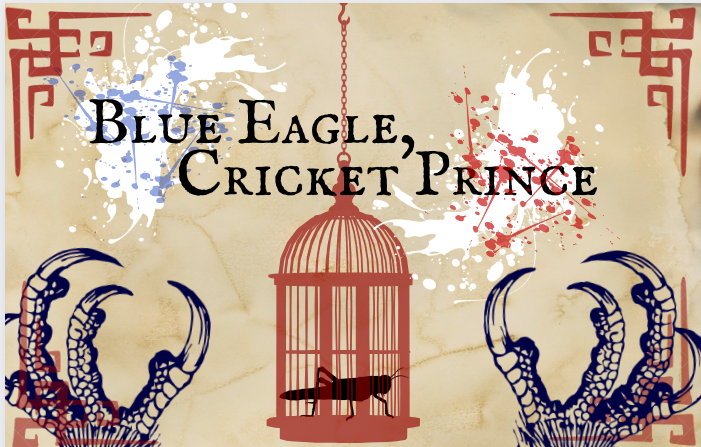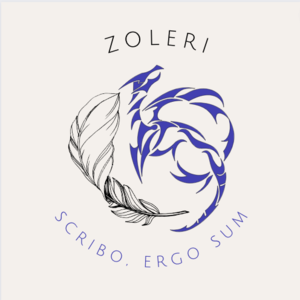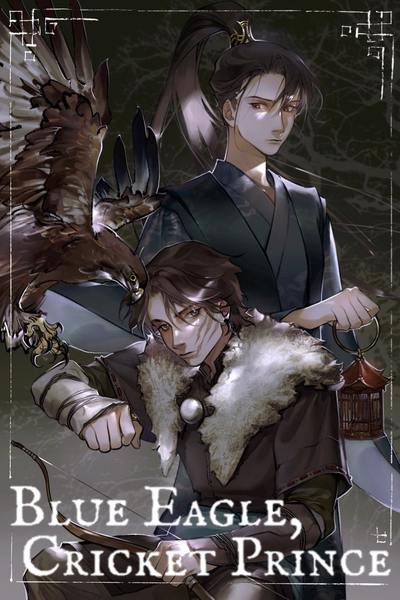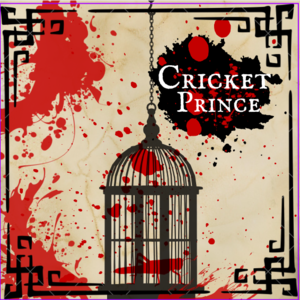On the way, Zhisen absorbed that horses truly were… fragrant. Although, knowing that a clean horse barely smelled of anything, he assumed it was ‘horse’ combined with being generally unwashed. Actually, how did the Erdeni nomads bathe…? He knew everything there was to know about their theology, their social hierarchies, their military strategies, the names of every prominent political figure— and he had even become literate in their script. But the mundane aspects of their lives were mysteries to him. They lived in yurts, had many master falconers among their ranks, alongside the pillaging and trade were pastoral— their animals included horses, camels, goats, donkeys, and cattle— and their best weapon was the bow.
But aside from some staple and exotic foods like kumis, Zhisen knew close to nothing about nomadic life. And so, his curiosity, as it usually did, got the better of him. He pondered it all the way to the Imperial Palace— did they wash in bodies of water? Or with tubs? Did ideas of spiritual contamination apply to bodies of water? Moreover, would a prince have more or less encouragement to bathe frequently, and what was the underlying idea? Just a lack of time?
When the gates of the palace were coming into view beyond the eaves of the black-shingled houses, Khojin spoke again. His choice to use Jirandai made Zhisen think that he still needed to work a bit on his Erdeni pronunciation. It was difficult though, since Zhisen didn’t have a conversational partner anymore. “I’m curious— how easily do you think you could escape me now?”
Zhisen was surprised by the question and lied. “How could I? Your dagger is at my throat.”
Khojin chuckled. “So, knives are not the only things you hide.”
“I have no idea what you are talking about.”
“How you managed to kill six of my men so quickly that I did not see is beyond me,” Khojin said, with an unsettling calm, “but I promise you that there will come a day when I learn.”
“Of course, there will,” Zhisen said, “although I’d rather not cross blades while holding my nose.”
He could almost feel the stretch of Khojin’s lips, a grin that was more like a baring of teeth, and with a too-sweet voice, he said, “The idea of skinning you alive is becoming appealing.” They turned a corner, and Zhisen locked eyes with one of the Imperial soldiers standing guard, then made a warning motion when he put a hand on the hilt of his sword. Khojin stopped walking at that moment, speaking close to his ear. “Tell me, where should I bathe on the back of my horse? And where should I dismount when I am hunted from all corners of the map by either your soldiers or my hunger?”
“Was I not clear?” Zhisen asked, meeting his gaze sidelong. “I would rather not cross blades with you when you are a few hours from collapsing of exhaustion. You would make a poor opponent.”
“Don’t play games with me,” he said, and started to walk again, pushing Zhisen forward.
“I don’t play.”
“Then what is this, if you know you could disarm me right at this moment?”
My hunch that whatever you are going to say to my father will reveal the true plans of the court, he thought, but only scoffed and said, “Something beyond the comprehension of a crude barbarian.” Just when the flat of Khojin’s blade started to press against his throat with a stinging force, Zhisen called out to the guards— he changed his voice in an effort to sound like he was barely suppressing his fear. “Stand down, he and I have agreed to this arrangement to quell the battle.” Both of the soldiers looked hesitant but made no move to call for reinforcements or attack. “Chief Tolon has sent his son to relay a message to the Emperor. Will you let us through, and send a messenger ahead so that the court officials do not keel over and die of shock when I enter the throne room in the arms of a stinking ruffian?”
Khojin whispered, “Joke again and I’ll take your tongue with me as a parting gift.”
“And what will you do with it, pray tell?” Zhisen asked, only to watch his eye twitch.
After some debate amongst themselves, the soldiers let them into the courtyard, but as soon as the gates were shut, Khojin told them, “We will wait here. Tell Emperor Haoda to come down, or I will not speak a word.” All of the twenty-odd soldiers lined against the walls of the courtyard stared. Seeing the lack of reaction, Khojin turned his knife around. The edge was so sharp that he did not even need to press, and Zhisen felt his skin splitting. His fingernails bit into his palms as he forced himself not to move away from the sting. Several of the men unsheathed their swords. Khojin said, “The Emperor, now.”
One of the soldiers stationed at the door entered with great haste. Khojin did not move at all, and neither did any of the men who had drawn their swords. The stillness stretched for a long time. Birds were singing in the surrounding trees, but the usual sounds of chatter and polite laughter that could be heard from the gardens and courtyards beyond the façade of the inner palatial city were mute. The alarm bell would have led everyone to lock themselves in their rooms while the soldiers poured out.
As a bead of blood rolled down Zhisen’s neck, Khojin spoke again. “It strikes me suddenly that Prince Junsai was not in the marketplace. Isn’t it beyond your duties to subdue raids?”
“I’ve said before that my reasoning is beyond your understanding.”
“True, a man could never understand a peacock’s warbling.”
Zhisen could feel his nerves fraying, and the stink wasn’t helping, nor the feeling of his blood drying on his neck. Moreover, the last time he had felt someone’s chest against his back had been when Ziying had taught him archery. Shutting his eyes, he focused on the knife at his throat. Lift your elbow a little more, A-sen. Sweat rolled down his nape as Ziying’s voice pounded through his skull. It was probably Khojin’s build that reminded him so viscerally— he had the same broad shoulders, the same mountain-like steadiness. Not that high, or you’ll hit me. Wait, are you trying to pick a fight? Oho, cheeky monkey—
“Unhand my son, Khojin Adkirag.”
His father’s voice pierced the noise in his head like a clear stream cutting through a meadow of tangled wildflowers. Their eyes met. Every time he looked at his father, it seemed like he was getting older and older. His face now was as calm and composed as ever, but his feelings were in his eyes, as they always were— and he was enraged. It did not help when Khojin told him, “My apologies, Your Majesty, but I do not trust that if I let go of him now, you will not have your soldiers run me through.”
“Knowing this, you still choose to offend me thus?” he asked, with a dangerous voice.
Khojin turned his blade around, and the flat of it pushed against the shallow wound. The fact that he did not balk at the Emperor's displeasure impressed Zhisen— after all, he was not like a frail old man, not by how he dressed, spoke, nor carried himself. Zhisen was certain that his father could still win against his sword, and it was without doubt that he would win in philosophical debate or in competition of style. He maintained a healthy figure, and his silvering hair seemed like the elegant creep of frost. His robes were luxuriant, formidable, ostentatiously rich, gilded threads shining in the sunlight.
Yet this did not seem to faze Khojin, dressed in a dusty coat, unhemmed scarves of silk, and wearing sections of stolen Imperial armour beneath. With a steady and casual voice, he said, “My father’s message is important. Besides, Prince Zhisen agreed to this. Ask your soldiers if you do not believe me. Should you not trust that your cleverest son has good reason to want you to hear what I have to say?”
At ‘cleverest son,’ the reactions were of two kinds. Emperor Haoda and the court officials did not show surprise at it, but Junsai’s facial muscles twitched— almost imperceptibly. Zhisen figured that Khojin and Junsai must have talked before, and without pleasant results. But it was Junsai who answered him, with his nose wrinkled as if he could smell ‘horse’ from even his distance. His voice was thick with scorn, his eyes narrow with distaste. “Where does a man wearing a trophy off a corpse get a face thick enough to demand anything from the Emperor while his knife drinks royal blood?”
Khojin’s response was swift, even amused. “Imperial armour is finer than what my people forge.”
Junsai’s eyes darkened, but he restrained himself. “Zhisen, is it true you’ve agreed?”
“It’s true. Although I did not agree to have my neck sliced.” As he said it, he watched the Emperor’s displeasure mounting. “Father, please lend him your ear, or he will remain here to pollute the air.”
Emperor Haoda’s jaw tightened slightly, but with a neutral expression, he said, “Speak.”
Khojin flipped his blade in his hand and sheathed it with his left hand, but he kept his right arm where it was, around Zhisen’s shoulder and chest. From the corner of his eye, Zhisen noticed for the first time the thick, dried blood on Khojin’s fingers. But when he spoke, it snapped Zhisen out of his nausea. “My father demands that you lift the ban on our use of marketplaces across your territory. It has gone on long enough, and too long that you might convince us there is a reason aside from provocation. If you do not want war, we request that you re-open market trade and make the next payment of tribute next week.” He fished from his coat a roll of paper tied with a string and a piece of rough jade, tossing it toward one of the court officials, who fumbled to catch it. “Peace, in return for everything on that list.”
“The tributes have never been unilateral,” Emperor Haoda said. “Peace, and what?”
“As usual. Hides and animals,” he said. It paled in comparison to gold, silk, rice, and wine.
There was a brief, tense silence. Junsai opened his mouth, but Emperor Haoda spoke first. “Very well. Is that all you wish to say?” It was natural that he could not refuse— if he did, it meant war, and if it meant war, Khojin would cut Zhisen’s throat. Naturally, Zhisen was glad that the situation had unfolded like this; if they went to war with the Erdeni, they were well and truly doomed. Resources were already spread thin enough in the battles with the Reidan Kingdom in the south.
Of course, the Erdeni knew that they would win, and so they were as bold as ever.
Khojin said, “No, that is all.” Then he added, “Pardon me, Your Highness.” Zhisen was about to ask what more he could possibly forgive, when a shrill whistle sounded near his left ear. He flinched and was glad that the knife wasn’t at his throat anymore, or he would have impaled himself on it from the surprise. Everyone in the courtyard looked confused and offended, but Khojin didn’t explain.
When the sound of hoofbeats drew near, though, Zhisen understood— and was incredulous. How could he make a horse come all that way with a single breath? As the clip of hooves on the cobblestones stopped, the gates opened behind them again, and Khojin let him go. Zhisen watched over his shoulder as Khojin mounted his mare, and then with a tug on her mane turned her to face the gates. He freed Zhisen’s sword from his sash and tossed it down. Zhisen caught it, and without a word, Khojin rode away.
As soon as he was beyond earshot, Junsai asked, “Zhisen, are you alright?”
“I’m fine,” he said, turning around. “But I didn’t anticipate that he would be so bold as to demand you come down into the courtyard. For my lack of foresight in that regard, I apologize.”
Emperor Haoda shook his head. “Do not waste your time in apologizing for what is beyond your control and go to the physician. I do not wager a barbarian cleans his knife.”
Zhisen bowed to him and started in that direction, but after exchanging some quiet words with their father, Junsai caught up to him and fell into stride. “What were you thinking, putting your neck on the line?”
“They were going to win the fight and destroy more of the city if I did nothing.” He paused, thinking that was explanation enough, but when he sensed an answer coming on, added, “I could have shot him, but I thought better of it— we should aim for peace and somehow negotiating a reduction of the tribute. They are shameless enough to only return a quarter of the value of our tributes, but their force is without question.”
Junsai sighed. “They’re never going to agree to getting less from us. Not without a fight.”
“I know that,” Zhisen said, as they entered the palace, “and so I am thinking about it.”
There was a brief silence between them, but when they were nearing the corridor that went to the physician’s quarters, Junsai stopped him with a hand on his shoulder. Zhisen met his eyes but noticed that his xiao guan had a different jewel in it today. And Khojin Adkirag called me a peacock? “We were in the court meeting discussing the reinforcements to send against Reidan. Their numbers haven’t changed, but we’re not advancing. What is your opinion?”
“Send another four hundred soldiers, and wait. If the tide turns, another two hundred will win.”
Junsai patted his back before starting to make his way toward the throne room. “Thank you.”
Zhisen offered up a small smile and headed for the physician’s quarters. Another bead of blood trickled down his neck while he walked, and he knew that it was only a matter of time before the court decided to go to war with the Erdeni. It was time to assemble his plan, piece by piece.












Comments (1)
See all